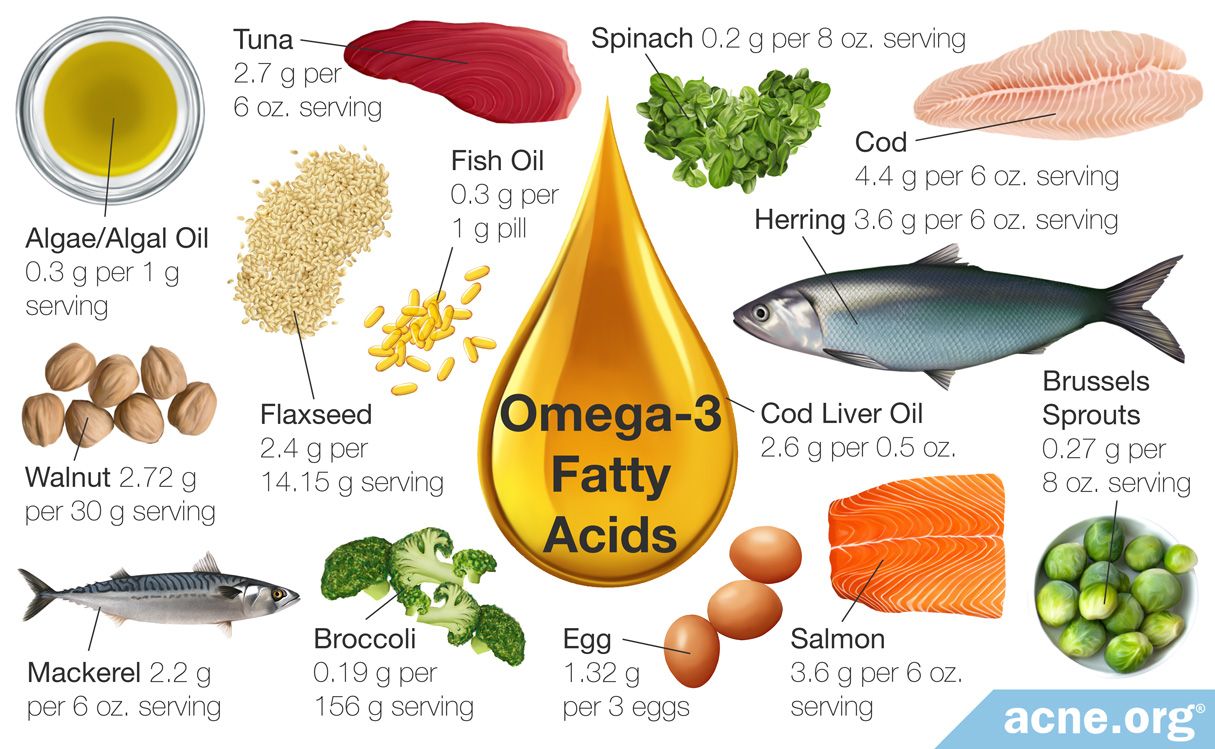Incorporating omega-3 fatty acids into one's diet has gained significant attention for its potential benefits in promoting joint health and managing arthritis. These essential fatty acids possess anti-inflammatory properties that can help reduce joint pain and inflammation associated with arthritis. Understanding the role of omega-3 fatty acids and how to incorporate them effectively can be highly beneficial for individuals seeking natural approaches to support their joint health. In this article, we will explore five helpful pieces of information about incorporating omega-3 fatty acids for joint health and arthritis management.
1, Omega-3 Fatty Acids and Inflammation.
Omega-3 fatty acids have been widely studied for their anti-inflammatory properties and their potential benefits in managing joint pain and arthritis.
Omega-3 fatty acids are a type of polyunsaturated fat that are commonly found in certain types of fish, such as salmon, mackerel, and sardines, as well as in flaxseeds, chia seeds, and walnuts. The two main types of omega-3 fatty acids that are considered particularly beneficial for health are eicosapentaenoic acid (EPA) and docosahexaenoic acid (DHA).
Inflammation is a natural immune response that helps the body fight off infections and heal injuries. However, when inflammation becomes chronic and persists for a long time, it can contribute to the development of various diseases, including arthritis. Omega-3 fatty acids have been shown to have anti-inflammatory effects by reducing the production of inflammatory compounds in the body.
One way omega-3 fatty acids reduce inflammation is by inhibiting the production of certain enzymes involved in the synthesis of inflammatory compounds. Specifically, EPA and DHA can compete with arachidonic acid, another type of fatty acid that is converted into inflammatory compounds called prostaglandins and leukotrienes. By incorporating omega-3 fatty acids into cell membranes instead of arachidonic acid, the production of these inflammatory compounds is reduced, leading to a decrease in inflammation.
Moreover, omega-3 fatty acids can also influence the expression of genes involved in inflammation. They can modulate the activity of transcription factors, which are proteins that control the expression of genes, leading to a decrease in the production of pro-inflammatory molecules.
Numerous studies have investigated the effects of omega-3 fatty acids on joint pain and arthritis, and several have demonstrated positive outcomes. Research suggests that omega-3 supplementation may help reduce joint pain, morning stiffness, and the need for anti-inflammatory medications in individuals with rheumatoid arthritis. In osteoarthritis, omega-3 fatty acids may also help alleviate symptoms and slow down the progression of the disease.
It's important to note that while omega-3 fatty acids can be beneficial for managing inflammation and joint pain, they are not a cure for arthritis or other inflammatory conditions. They are best used as part of a comprehensive treatment plan that may include medication, physical therapy, and lifestyle modifications.
If you have specific health concerns or are considering incorporating omega-3 fatty acids into your diet or supplementation regimen, it's always a good idea to consult with a healthcare professional for personalized advice.
2, Types of Omega-3 Fatty Acids.
There are indeed three main types of omega-3 fatty acids: eicosapentaenoic acid (EPA), docosahexaenoic acid (DHA), and alpha-linolenic acid (ALA). However, the distribution of these omega-3 fatty acids among food sources is slightly different from what you mentioned.
EPA and DHA are primarily found in fatty fish, such as salmon, mackerel, sardines, trout, and tuna. These marine sources are especially rich in EPA and DHA, with oily fish being the most concentrated sources.
ALA, on the other hand, is the omega-3 fatty acid primarily found in plant-based sources. Flaxseeds, chia seeds, hemp seeds, and walnuts are good sources of ALA. Additionally, some vegetable oils, such as flaxseed oil, canola oil, and soybean oil, contain ALA.
It's worth noting that while EPA and DHA are considered essential fatty acids because the body needs them but cannot produce them in sufficient amounts, ALA is technically not an essential fatty acid. This is because the body can convert ALA into EPA and DHA, although the conversion rate is relatively low. Therefore, consuming direct sources of EPA and DHA from fish or supplements is often recommended for optimal omega-3 intake.
To summarize, EPA and DHA are predominantly found in fatty fish, while ALA is mainly sourced from plant-based foods like flaxseeds, chia seeds, and walnuts.
3, Best Food Sources.
Including fatty fish like salmon, tuna, and trout in your diet is an excellent way to obtain EPA and DHA, the two primary omega-3 fatty acids with numerous health benefits. These fish are known for their high concentrations of EPA and DHA, making them great sources of these essential fatty acids. Consuming fatty fish at least twice a week is a commonly recommended guideline to ensure an adequate intake of omega-3 fatty acids.
For individuals who follow a vegetarian or vegan diet, plant-based sources like flaxseeds, chia seeds, hemp seeds, and walnuts are valuable options for obtaining ALA, the plant-derived omega-3 fatty acid. These sources can contribute to the overall omega-3 intake, although it's important to note that the conversion of ALA to EPA and DHA in the body is limited. If you rely solely on ALA sources for your omega-3 intake, you may want to consider an algae-based DHA supplement to ensure sufficient levels of EPA and DHA.
Incorporating a variety of these food sources into your diet can help you achieve a balanced intake of omega-3 fatty acids, whether you consume fish or follow a plant-based diet. It's always a good idea to consult a healthcare professional or a registered dietitian for personalized advice on meeting your specific dietary needs.
4, Omega-3 Supplements.
Omega-3 supplements can be a convenient alternative for individuals who find it challenging to obtain sufficient omega-3 fatty acids through their diet alone. Fish oil supplements, which are typically rich in EPA and DHA, are commonly available and widely used.
When considering omega-3 supplements, it's important to consult with a healthcare professional or a registered dietitian before starting any new supplements. They can provide personalized advice based on your specific health needs and help determine the appropriate dosage for you. Additionally, they can also assess if any potential interactions may occur with any medications you may be taking.
Not all omega-3 supplements are the same, so it's crucial to choose high-quality supplements from reputable manufacturers. Look for supplements that provide the specific amounts of EPA and DHA you require and undergo third-party testing to ensure purity and quality. It's also a good idea to check the source of the fish used in the supplement, as some fish sources may have higher levels of contaminants like mercury.
While omega-3 supplements can be beneficial, it's important to note that they are not a substitute for a healthy diet. Consuming a variety of nutrient-dense foods, including fatty fish and plant-based sources, should be the primary focus. Supplements should be used as a complement to a well-balanced diet and a healthy lifestyle.
Remember, it's always best to seek personalized advice from a healthcare professional who can take into account your individual circumstances and provide appropriate recommendations regarding omega-3 supplements.
5, Consultation with Healthcare Professionals.
Consulting with a healthcare professional is crucial when considering the incorporation of omega-3 fatty acids or any other dietary intervention for joint health and arthritis management. Healthcare professionals, such as doctors, rheumatologists, or registered dietitians, can provide personalized recommendations based on your specific health condition, medical history, current medications, and individual dietary needs.
A healthcare professional can assess your overall health, evaluate the severity of your joint pain or arthritis, and determine if omega-3 fatty acids would be a suitable addition to your treatment plan. They can also guide you in choosing the most appropriate sources of omega-3 fatty acids, whether from dietary sources or supplements, and help determine the optimal dosage or frequency based on your specific needs.
Moreover, healthcare professionals can monitor your progress and make adjustments to your treatment plan as needed. They can provide guidance on potential interactions with medications you're currently taking and offer advice on any precautions or contraindications related to omega-3 supplementation.
Remember, every individual is unique, and what works for one person may not work for another. Therefore, seeking professional advice ensures that you receive personalized recommendations tailored to your specific situation. Consulting with a healthcare professional will help you make informed decisions about incorporating omega-3 fatty acids into your joint health and arthritis management plan.
Incorporating omega-3 fatty acids into one's lifestyle can be a valuable strategy for promoting joint health and managing arthritis. The anti-inflammatory properties of these essential fatty acids have been shown to reduce joint pain and inflammation, offering relief to individuals suffering from arthritis. Whether through consuming fatty fish like salmon and tuna, incorporating plant-based sources such as flaxseeds and walnuts, or opting for omega-3 supplements, there are various ways to ensure an adequate intake of these beneficial nutrients. However, it is crucial to consult with healthcare professionals to determine the most suitable approach for individual needs and to ensure compatibility with existing medications. By embracing the power of omega-3 fatty acids and integrating them into a comprehensive joint health plan, individuals can take positive steps towards managing arthritis symptoms and improving their overall quality of life.





Comments
Post a Comment